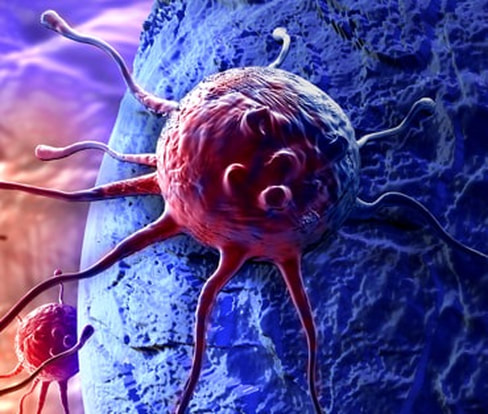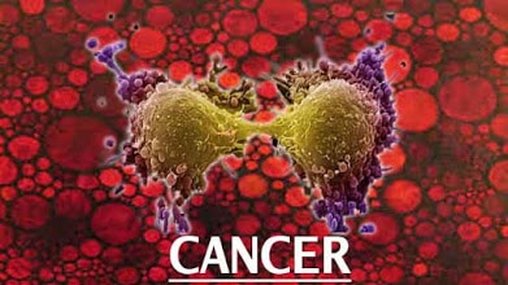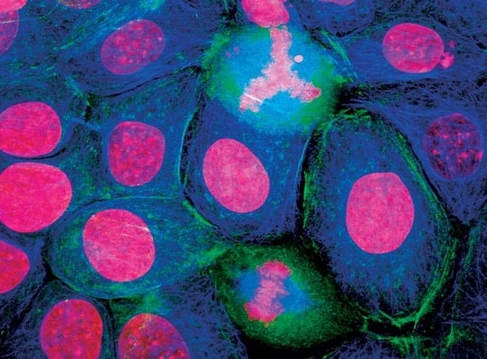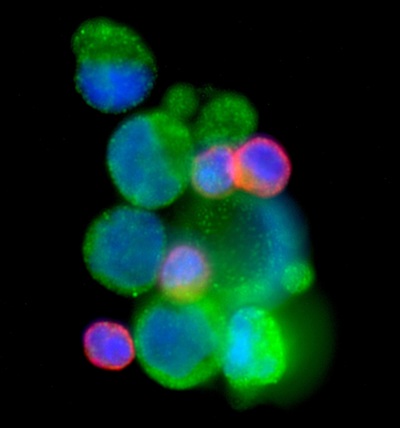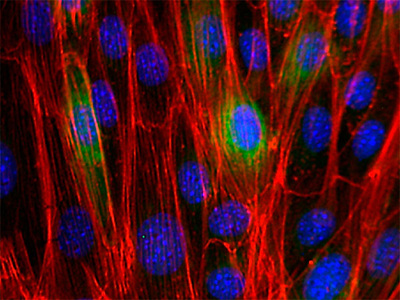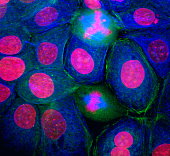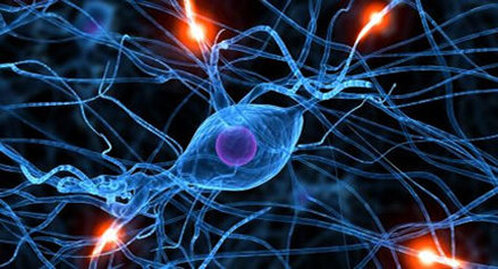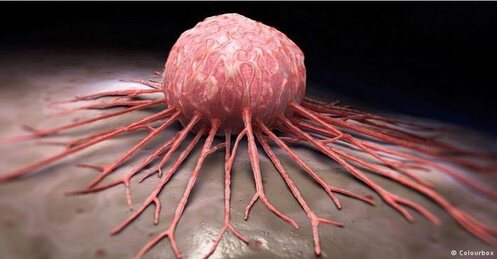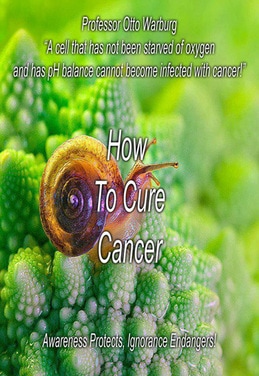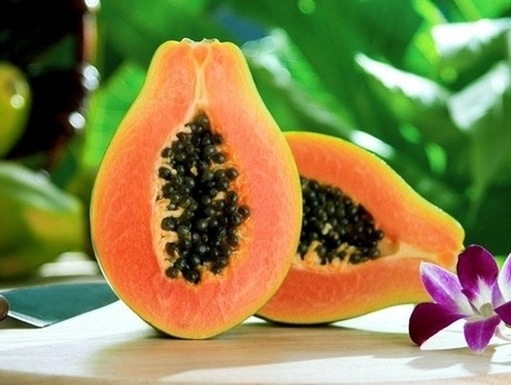C A N C E R
Cure Cancer
Cure with Wheatgrass
Cancer... / Dr. Circus
Cancer Risk / At Home
Cancer & Vitamin C
Dr. Leonard Caldwel
Ginger & Cancer
Hot Dog = Cancer
Potato Chips
Thyme Oil / Chamomile
7 Top Cancer Foods
Cure Cancer
Cure with Wheatgrass
Cancer... / Dr. Circus
Cancer Risk / At Home
Cancer & Vitamin C
Dr. Leonard Caldwel
Ginger & Cancer
Hot Dog = Cancer
Potato Chips
Thyme Oil / Chamomile
7 Top Cancer Foods
A Simple Explanation of Cancer
“Our body cells are surrounded by fluids which should be
slightly alkaline in order to sustain life.”
If the condition of our extracellular fluids, especially the blood, becomes acidic,
our physical condition will first manifest tiredness, proneness to catching colds, etc.
When these fluids become more acidic, our condition then manifests
pains and suffering such as headache, chest pain, stomachache, etc.
If the blood develops a more acidic condition, then our body
inevitably deposits these excess acidic substances in some area of the body
such so that the blood will be able to maintain an alkaline condition.
As this tendency continues, such areas increase in acidity
and some cells die; then these dead cells themselves turn into acids.
However, some other cells may adapt in that environment.
In other words, instead of dying – as normal cells do in an acid environment –
some cells survive by becoming abnormal cells. These abnormal cells are called malignant cells.
Malignant cells do not correspond with brain function nor with our own DNA memory code.
Therefore, malignant cells grow indefinitely and without order. This is cancer.
Dr. Keiichi Morishita. Hidden Truth of Cancer / Continued in the Download File
How to Cure Cancer
Download File
“Our body cells are surrounded by fluids which should be
slightly alkaline in order to sustain life.”
If the condition of our extracellular fluids, especially the blood, becomes acidic,
our physical condition will first manifest tiredness, proneness to catching colds, etc.
When these fluids become more acidic, our condition then manifests
pains and suffering such as headache, chest pain, stomachache, etc.
If the blood develops a more acidic condition, then our body
inevitably deposits these excess acidic substances in some area of the body
such so that the blood will be able to maintain an alkaline condition.
As this tendency continues, such areas increase in acidity
and some cells die; then these dead cells themselves turn into acids.
However, some other cells may adapt in that environment.
In other words, instead of dying – as normal cells do in an acid environment –
some cells survive by becoming abnormal cells. These abnormal cells are called malignant cells.
Malignant cells do not correspond with brain function nor with our own DNA memory code.
Therefore, malignant cells grow indefinitely and without order. This is cancer.
Dr. Keiichi Morishita. Hidden Truth of Cancer / Continued in the Download File
How to Cure Cancer
Download File
How to Cure Cancer
"Almost no one dies from cancer anymore; chemotherapy kills us.
Of course, doing nothing will eventually kill. But that is not what most are dying from.
Cancer takes years to develop, usually seven before there was a visible tumor,
which is in fact the body's attempt to save the organism's life
by storing away the toxins that would otherwise kill a person.”
Dr. L. Coldwell
Of course, doing nothing will eventually kill. But that is not what most are dying from.
Cancer takes years to develop, usually seven before there was a visible tumor,
which is in fact the body's attempt to save the organism's life
by storing away the toxins that would otherwise kill a person.”
Dr. L. Coldwell
Every Cancer Can be Cured in Weeks explains Dr. Leonard Coldwell
Dr.Tullio Simoncini
The left image below shows tumor cell cluster isolated using the HB-Chip
from the blood of a patient.
The blood test is so sensitive that it can spot a single cancer cell lurking
among a billion healthy ones.
from the blood of a patient.
The blood test is so sensitive that it can spot a single cancer cell lurking
among a billion healthy ones.
The Beautiful Truth
http://gerson.org/gerpress/
Gerson Clinic in Hungary
http://gerson.org/gerpress/gerson-health-centre
From the World Famous Gerson Clinic / A Beautiful Movie 1 Hr. 38 Min.
Raised on a wildlife reserve in Alaska,
15-year-old Garrett was interested in the dietary habits of the farm animals.
After the tragic death of his mother, Garrett's father decided to home-school his son and assigned a book written by Dr. Max Gerson that proposed a direct link between diet and a cure for cancer.
Fascinated, Garrett embarks in this documentary on a cross-country road trip to investigate The Gerson Therapy. He meets with scientists, doctors and cancer survivor.s who reveal how it is in the best interest of the multi-billion dollar medical industry to dismiss the notion of alternative and natural cures.
http://gerson.org/gerpress/
Gerson Clinic in Hungary
http://gerson.org/gerpress/gerson-health-centre
From the World Famous Gerson Clinic / A Beautiful Movie 1 Hr. 38 Min.
Raised on a wildlife reserve in Alaska,
15-year-old Garrett was interested in the dietary habits of the farm animals.
After the tragic death of his mother, Garrett's father decided to home-school his son and assigned a book written by Dr. Max Gerson that proposed a direct link between diet and a cure for cancer.
Fascinated, Garrett embarks in this documentary on a cross-country road trip to investigate The Gerson Therapy. He meets with scientists, doctors and cancer survivor.s who reveal how it is in the best interest of the multi-billion dollar medical industry to dismiss the notion of alternative and natural cures.
Ph is a measure of the alkalinity of the fluids in your body...
...weather your fluids are acid or alkaline. Ultimately, this measure dictates how you feel, your energy levels, and your mental state. The pH level inside any body changes constantly as food, emotions, exercise, air quality, water quality, and many other factors change your PH.
For this reason, getting an accurate pH level is difficult, as it is constantly changing. Having a bad day? .. changes your pH is moving toward acid.. get a hug from a loved one and having a good day, ph is moving toward alkaline.
...weather your fluids are acid or alkaline. Ultimately, this measure dictates how you feel, your energy levels, and your mental state. The pH level inside any body changes constantly as food, emotions, exercise, air quality, water quality, and many other factors change your PH.
For this reason, getting an accurate pH level is difficult, as it is constantly changing. Having a bad day? .. changes your pH is moving toward acid.. get a hug from a loved one and having a good day, ph is moving toward alkaline.
How does pH change your health?
Our cells all have a voltage, some what like a battery. If the voltage is low we feel tired and a state of dis-ease begins. The optimal pH of our cells is 7.35 -- this equals -20 milivolts.
This voltage can be converted to to a logarithmic scale of 1-14 called pH. Cells are designed to run at a pH of 7.35 (-20 millivolts) to a pH of 7.45 (-25 millivolts).
We heal by making new cells. Making new cells requires -50 millivolts. As the acid level in your body increases and the voltage drops, cells do not have enough energy to work properly, we start to feel pain, bacteria & parasites multiply- and they put out material to dissolve our cells - in other words -- they eat us & chronic diseases start.
Cancer cells have a pH of around 6.3
and have a specific low voltage
Our cells all have a voltage, some what like a battery. If the voltage is low we feel tired and a state of dis-ease begins. The optimal pH of our cells is 7.35 -- this equals -20 milivolts.
This voltage can be converted to to a logarithmic scale of 1-14 called pH. Cells are designed to run at a pH of 7.35 (-20 millivolts) to a pH of 7.45 (-25 millivolts).
We heal by making new cells. Making new cells requires -50 millivolts. As the acid level in your body increases and the voltage drops, cells do not have enough energy to work properly, we start to feel pain, bacteria & parasites multiply- and they put out material to dissolve our cells - in other words -- they eat us & chronic diseases start.
Cancer cells have a pH of around 6.3
and have a specific low voltage
| How to Cure Cancer | |
| File Size: | 2504 kb |
| File Type: | |
| Clark Hulda / The Cure for All Cancers | |
| File Size: | 3677 kb |
| File Type: | |
| Nature Cure / Dr. HK. Bhakru | |
| File Size: | 1615 kb |
| File Type: | |
Clark Hulda / The Cure for All Cancer / Free PDF
http://onelight.com/library/Clark,%20Hulda%20-%20The%20Cure%20for%20All%20Cancers.pdf
PDF Books to Cure Cancer
http://curezone.com/books/online/default.asp
The Complet Book of Natural Cure / Dr. HK. Bhakru
http://www.iitk.ac.in/hc/sMantra/Nature%20Cure%20-%20Dr%20HK%20Bhakru.pdf
http://onelight.com/library/Clark,%20Hulda%20-%20The%20Cure%20for%20All%20Cancers.pdf
PDF Books to Cure Cancer
http://curezone.com/books/online/default.asp
The Complet Book of Natural Cure / Dr. HK. Bhakru
http://www.iitk.ac.in/hc/sMantra/Nature%20Cure%20-%20Dr%20HK%20Bhakru.pdf
| How to Cure Cancer | |
| File Size: | 2504 kb |
| File Type: | |
Why the U.S. Doesn’t Crack Down on Toxic Chemicals
http://articles.mercola.com/sites/articles/archive/2015/12/08/toxic-chemical-health-risks.aspx?
http://articles.mercola.com/sites/articles/archive/2015/12/08/toxic-chemical-health-risks.aspx?
How to Cure Cancer / See the Download File Above
http://www.youtube.com/watch?v=HQuODiMlUsc / Cancer is a Fungus / 1 / 1
http://www.youtube.com/watch?v=ri-C8VvF3Rs&feature=related 2 / 2
http://www.youtube.com/watch?v=nn_nMVShU3U / Dr.Tullio Simoncini 1 / 3
http://www.youtube.com/watch?v=sYT0zfNhbK8 2 / 3
http://www.youtube.com/watch?v=LLXvMeMsmXs 3 / 3
http://www.youtube.com/watch?v=HQuODiMlUsc / Cancer is a Fungus / 1 / 1
http://www.youtube.com/watch?v=ri-C8VvF3Rs&feature=related 2 / 2
http://www.youtube.com/watch?v=nn_nMVShU3U / Dr.Tullio Simoncini 1 / 3
http://www.youtube.com/watch?v=sYT0zfNhbK8 2 / 3
http://www.youtube.com/watch?v=LLXvMeMsmXs 3 / 3
They Knew it in 1931
Professor Otto Warburg won his first Nobel Prize in 1931 for proving
that cancer cannot live in a cell, rich in oxygen and with a balanced ph.
He got his second Nobel Prize in 1944 for his discovery
of the hydrogen transferring enzymes. His discoveries are quoted as follows:
"Nobody today can say that one does not know what cancer and its prime cause is.
On the contrary, there is no disease whose prime cause is better known,
so that today ignorance is no longer an excuse that one cannot do more about prevention.”
“But, even for cancer there is only one primary cause.
Summarized in a few words, the cause of cancer is the replacement
of the respiration of oxygen in normal body cells by a fermentation of sugar.
Because no cancer cell exists, the respiration of which is intact,
it cannot be disputed that cancer could be prevented
if the respiration of the body cells would be kept intact.”
Professor Otto Warburg
that cancer cannot live in a cell, rich in oxygen and with a balanced ph.
He got his second Nobel Prize in 1944 for his discovery
of the hydrogen transferring enzymes. His discoveries are quoted as follows:
"Nobody today can say that one does not know what cancer and its prime cause is.
On the contrary, there is no disease whose prime cause is better known,
so that today ignorance is no longer an excuse that one cannot do more about prevention.”
“But, even for cancer there is only one primary cause.
Summarized in a few words, the cause of cancer is the replacement
of the respiration of oxygen in normal body cells by a fermentation of sugar.
Because no cancer cell exists, the respiration of which is intact,
it cannot be disputed that cancer could be prevented
if the respiration of the body cells would be kept intact.”
Professor Otto Warburg
"The Cancer Industry is not interested in curing patients.
Their rate of recovery is only 2 percent."
"Almost no one dies from cancer anymore; chemotherapy kills us.
Of course, doing nothing will eventually kill. But that is not what most are dying from.
Cancer takes years to develop, usually seven before there was a visible tumor,
which is in fact the body's attempt to save the organism's life by
storing away the toxins that would otherwise kill a person.”
Dr. L. Coldwell
http://www.youtube.com/watch?v=DgbdNNfotwM
Their rate of recovery is only 2 percent."
"Almost no one dies from cancer anymore; chemotherapy kills us.
Of course, doing nothing will eventually kill. But that is not what most are dying from.
Cancer takes years to develop, usually seven before there was a visible tumor,
which is in fact the body's attempt to save the organism's life by
storing away the toxins that would otherwise kill a person.”
Dr. L. Coldwell
http://www.youtube.com/watch?v=DgbdNNfotwM
The Anti - Cancer Green Juice
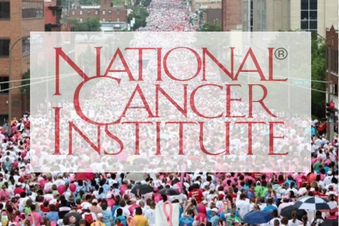
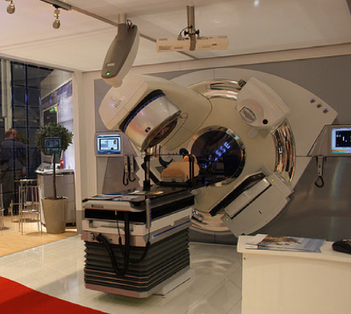
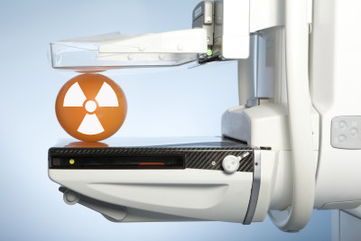
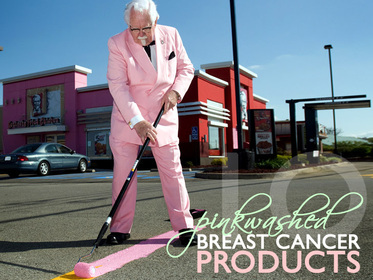
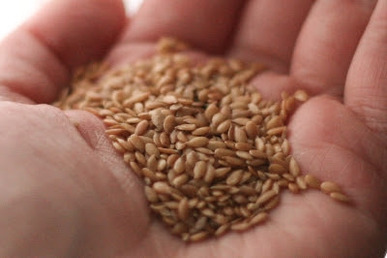
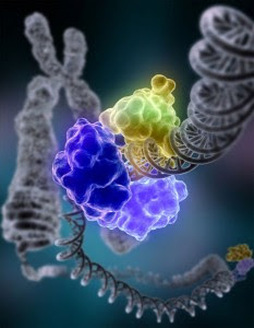
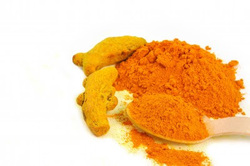
The Quest For The Cures...Continues Episode
1: Modern Medicine & the Cancer Pandemic
https://www.youtube.com/watch?v=Rc1rtIxvkao
The Quest For The Cures...Continues Episode 2: Your First Line of Defense
https://www.youtube.com/watch?v=3jBV_I57nW4
Episode 3 - Eliminate these 'Dirty Dozen' to Prevent Cancer
https://www.youtube.com/watch?v=I3aUMv
https://www.youtube.com/watch?v=FVafP6VFJxU
Episode 6 - Clean Foods & the Cancer Free Diet
https://www.youtube.com/watch?v=vMc2ieNCQD4
Episode 7 - Diagnostic "Do's & Don'ts" Proven Treatment Protocols - Part 1
https://www.youtube.com/watch?v=bRjW_5OWthQ
Episode 8 - Proven Treatment Protocols - Part 2
https://www.youtube.com/watch?v=U092pCOVHh0
Episode 9 - Proven Treatment Protocols - Part 3
https://www.youtube.com/watch?v=cstRk2O6u-A
Episode 10 - Doctor's Orders
https://www.youtube.com/watch?v=FBTTlHCvIpg
Episode 11 - How to Survive & Thrive
https://www.youtube.com/watch?v=8ixCk3dwP2M
http://thetruthaboutcancer.com/spring15/replay.php?a_aid=1605727#
1: Modern Medicine & the Cancer Pandemic
https://www.youtube.com/watch?v=Rc1rtIxvkao
The Quest For The Cures...Continues Episode 2: Your First Line of Defense
https://www.youtube.com/watch?v=3jBV_I57nW4
Episode 3 - Eliminate these 'Dirty Dozen' to Prevent Cancer
https://www.youtube.com/watch?v=I3aUMv
https://www.youtube.com/watch?v=FVafP6VFJxU
Episode 6 - Clean Foods & the Cancer Free Diet
https://www.youtube.com/watch?v=vMc2ieNCQD4
Episode 7 - Diagnostic "Do's & Don'ts" Proven Treatment Protocols - Part 1
https://www.youtube.com/watch?v=bRjW_5OWthQ
Episode 8 - Proven Treatment Protocols - Part 2
https://www.youtube.com/watch?v=U092pCOVHh0
Episode 9 - Proven Treatment Protocols - Part 3
https://www.youtube.com/watch?v=cstRk2O6u-A
Episode 10 - Doctor's Orders
https://www.youtube.com/watch?v=FBTTlHCvIpg
Episode 11 - How to Survive & Thrive
https://www.youtube.com/watch?v=8ixCk3dwP2M
http://thetruthaboutcancer.com/spring15/replay.php?a_aid=1605727#
Lee Euler, Editor
Web Version | Subscribe | Back Issues | Resource Center | Feedback
About Cancer Defeated!
"Fruit of the Angels"
Stops Cancer in Its Tracks
http://www.cancerdefeated.com/newsletters/about.html
Christopher Columbus discovered it in Mexico and called it the "fruit of the angels."
Some people think he chose the name because of the fruit's heavenly taste, unbelievable juiciness, and out-of-this-world scent.
But beyond its taste and aroma, scientists have confirmed this fruit's ability to stop cancer growth. Nor do its health benefits stop with cancer. Keep reading to discover everything this "super fruit" can do for you...
Oliver was doomed to die from cancer within 8 hours --
But then he found out what to do ...
Oliver had reached the end of the road in his seven-year fight against cancer. His doctors didn't think this 32-year-old man would live through the night.
But when I talked to Oliver six years later, he was the picture of health! He got rid of his cancer completely.
Yes, Oliver found the answer — his own cancer miracle.
I sat down with him and his doctor and they told me an incredible story. . . a story that could help save you or someone you love from this dreaded disease.
If you'd like to hear it, click here now.
The best cancer food these scientists could find
Out of 14 foods studied by scientists for the ability to stop breast cancer cell growth, papaya outshone them all.
The list of foods they examined included avocado, fuava, mango, prickly pear cactus, pineapple, grapes, tomato and papaya. They measured beta-carotene, total plant phenolics, gallic acid, and antioxidant capacity.
According to the International Journal of Food Science and Nutrition(May 2009) papaya was the only one with significant success at halting breast cancer cells.
So what is it in papaya that induces cancer cell death?
Scientists believe it may be organo-sulfur compounds called isothiocyanates.
Animal experiments show that isothiocyanates protect against cancers of the breast, lung, pancreas, colon, prostate, and leukemia. What's more, they believe this protection may also apply to humans.
Isothiocyanates are believed to be capable of inhibiting both the initiation and development of cancer cells, through many pathways and mechanisms.1
Japanese researchers found that an isothiocyanate known as BITC controls the relationship between cell cycle regulation and appropriate cell death. As you probably know, when cancer cells die on schedule they're not a problem. It's their tendency to be almost immortal that makes them so deadly.
These researchers found that BITC's cancer-killing properties were more effective against proliferating cells than dormant ones — and of course the proliferating ones are the highly dangerous ones.2
Groundbreaking research on lab-grown tumors
Along with colleagues in Japan, University of Florida researcher Nam Dang, M.D. and Ph.D., documented papaya's dramatic anticancer properties versus several lab-grown tumors (including cervical, breast, liver, lung and pancreas).3
These researchers made an extract from dried papaya leaves, and exposed 10 types of cancer cell cultures to four different strengths of papaya for 24 hours. Papaya slowed the growth of tumors in all the cultures, but larger doses had stronger anticancer effects.
They also found that papaya leaf extract boosts the key signaling molecules called Th1-type cytokines, important for regulating your immune system.
You'd be happy to know that the papaya extract had no toxic effects on any normal cells — a problem with many cancer therapies, notably conventional ones. Papaya's success in this regard lines up with reports from indigenous populations in Australia and Vietnam, according to Dang, of the UF Shands Cancer Center Clinical Trials Office. It's important to note that papaya leaf extract is not the same as the fruit, but these findings suggest that both have the power to kill cancer cells.
A researcher at the University of Texas M.D. Anderson Cancer Center in Houston, Bharat B. Aggarwal, Ph.D., is so convinced of papaya's awesome health powers that he personally eats a serving of papaya every day.
Of course, you'd already know papaya can lick cancer if you owned a copy of our Complete Guide to Alternative Cancer Treatments. You can get a free copy of this 460-page book by joining our "platinum club," the Alternative Cancer Research Institute.
In the Complete Guide, an Australian man named Stan Sheldon, diagnosed with lung cancer in 1962, had this to say about papaya: "I was dying from cancer in both lungs when it was suggested to me as an old Aboriginal remedy. I tried it for two months and then I was required to have a chest X-ray.... They told me both lungs were clear."
That's an amazing story, and I certainly can't promise results like that. But if I had cancer I think I might add papaya to my diet! It sure can't hurt
.
The papain miracle — fights rogue proteins and more...
The reason for papaya's health-promoting powers is most likely papain — papaya's signature enzyme — found in both the fruit and the leaves.
Papain is a powerful proteolytic enzyme that facilitates chemical reactions within your body. It helps break down long-chain food proteins into small bits -- amino acids or short-chain peptides -- that your body can use. Proteolytic enzymes protect you from inflammation, and digest unwanted scar tissue both on your skin and under its surface.
Proteolytic enzymes like papain are powerful agents against cancer, heart and artery disease, arthritis pain and a whole range of other medical conditions. You can learn more about them in a Special Report I wrote myself called The Missing Ingredient for Good Health. I take enzymes daily and recommend them to everyone.
Unfortunately, as you age, your body's own production of digestive enzymes goes down, leaving you with excessive undigested proteins that can cause a shortfall of amino acids and an excess of unwanted bacteria and other toxins.
If undigested proteins penetrate your gut and escape into your bloodstream, they are treated by your immune system as invaders. Too many of these escapees, and your immune system gets overworked and can't keep up.
Eating papaya counteracts that problem, aids digestion and also helps replenish friendly intestinal bacteria. Papain provides the proteolytic power you need to free up your immune system to do its normal work.
Proteolytic enzymes can also digest and destroy the defense mechanisms of viruses, tumors, allergens, yeasts, and some types of fungus. Once their shield is destroyed, these menacing organisms are extremely vulnerable and your immune system can easily oust them.
The awesome cancer-fighting power of lycopene
Papaya's orange-yellow-pink coloring is the visible sign of an awesome group of cancer-fighting carotenoids. The fruit boasts high amounts of beta-carotene, but lycopene (a powerful antioxidant) is also abundant.
University of Illinois scientists believe these antioxidants may be another reason why papaya is such a powerful cancer fighter.
This hypothesis seems to be backed by epidemiological studies, which show an inverse relationship between lycopene and prostate cancer risk. The higher a person's lycopene levels, the lower his risk of prostate cancer. And the good news is that oral lycopene is highly bioavailable and accumulates in prostate tissue.
Other experiments indicate that lycopene provokes cancer cell death, prevents metastasis, and encourages protective enzymes.4 If you're new to this newsletter, "metastasis" is the word for cancer spreading from the original site to other parts of the body. It's the signal for late stage cancer, which is very hard to cure.
An Australian study evaluated 130 prostate cancer patients and 274 hospitalized controls.
They found that men consuming the most lycopene-rich fruits and veggies (like papaya) were 82 percent LESS likely to get prostate cancer. Green tea also showed a powerful anti-cancer effect. And the synergistic effect of both together was even better.5
Wipes out intestinal parasites
As mentioned earlier, papain improves digestion by breaking down protein and cleansing your digestive tract.
This means papain may destroy many an intestinal parasite, because parasites are mostly protein. Researchers Mariam Naseem and Muhammed Kamran at the University of Karachi, India, note that in Nigeria, 76.7 percent of children were able to shake off intestinal parasites in just seven days by drinking the juice of papaya seeds. If those results can be confirmed, they amount to a breakthrough in parasite treatment.
Similarly, if your body fails to break down proteins from your food, you're left with undigested protein that can make its way into your colon and contribute to gassiness, bloating, indigestion, and more.
Also of value if you care about heart health
(and who doesn't?)
Papaya is also a naturally occurring blood thinner that can reduce your risk of blood clots and optimize blood flow. It does this because the papain enzyme in papaya breaks down fibrin, the protein in the blood that creates clots and helps make blood thick and viscous. If you reduce fibrin levels you slash your risk of blood clots, which are the immediate cause of most strokes and heart attacks.
Papaya seeds also promote a healthy heart, by way of three powerful antioxidants — vitamins A, C, and E. Carotenoid phytonutrients in your body help prevent oxidation of cholesterol — which is the process that makes cholesterol stick to the walls of your blood vessels and form plaques that can lead to heart attacks and strokes.
Papaya's high fiber also has a cholesterol-controlling effect on your body.
Protects your eyes from macular degeneration
As you probably know, age-related macular degeneration (ARMD) can cause blurred vision, eventually leading to blindness. The antioxidant beta-carotene, which gives the orange color to papaya, is known to help prevent macular degeneration, according to a study published in the Archives of Ophthalmology. But note that it takes three or more servings of beta-carotene-rich fruits per day to lower your risk of macular degeneration.
And more...
As you might expect of a whole food, papaya has extensive benefits throughout your system. Here's a quick list:
Naturally, there's a caveat. And it's a biggie...
The vast majority (statistics vary, but around 80% seems to be the norm) of Hawaiian papayas are genetically modified. And cross-contamination to non-GMO crops is widespread throughout Hawaii — to the outrage of non-GMO growers.
The U.S. does not ban genetically modified papayas. But if you're reading this from Europe, you should be safe… the information we have indicates GMO papayas are banned in the EU.
One other caveat… due to its papain, it may be contra-indicated if you're on blood thinners or undergoing surgery soon. All proteolytic enzymes thin the blood. Consult your doctor on this. My recommendation is to wean yourself off pharmaceutical blood thinners by using natural proteolytic enzymes to do the same job.
How to shop for papayas
The first thing you'll want to consider is buying organic. NOP standards prohibit GMO products from being labeled "organic".
Do not be deceived by the "natural" label, however. So-called natural foods can (and do) include GMO foods. The use of the word is almost completely unregulated.
We tried to find out for you which varieties are most likely to be genetically modified — or not — so you could avoid them. This is not an all-inclusive list, but it's a starting point to help you shop wisely. Please know that any GMO list is a moving target these days, and may change almost without notice. So it's a good idea to confirm this with your own research.
Non-GMO varieties:
The two main varieties are from Hawaii and Mexico. And as already noted, most Hawaiian papayas are genetically modified. Mexican papayas can be as large as 20 pounds and 15 inches. Phew!
Like bananas, papayas turn from green to yellow as they ripen, which happens quickly at room temperature or in a paper bag.
If you can find organic and non-GMO sources, papaya can be a terrific adjunct to the rest of your healthy diet and provide an abundance of benefits — certainly including its cancer capabilities.
While you take advantage of this delicious way to prevent or treat cancer, you might want to avoid one of the major causes of cancer — a medical test that's highly dangerous and used way too often. If you missed this news in the last issue, you can read it below right now.
X-rays are a major cause of cancer
We Americans are the most over-X-rayed people on earth, and the heavy doses of radiation we get are a major, and growing, cause of cancer. A British study suggests nearly one percent of all cancer cases in the United States (0.9 percent, to be exact) are due to diagnostic X-rays. That's a full 50 percent more than in the UK, where about 0.6 percent of cancers are caused by doctors taking pictures. The Brits don't subject patients to as many X-rays as we do.
Doctors, of course, would have us believe the benefits of X-rays outweigh the "small" increase in risk. One cancer out of a hundred may not sound like much, but just imagine if, say, a supplement like C0Q10 were found to be the cause of one percent of all cancers. It would be pulled off the shelves so fast your head would spin, and there would be no talk of balancing the dangers with the benefits (which happen to be enormous for this supplement).
What does radiation do to you? Let's take a look...
Continued below...
Flip Your Body's Energy Switch to "ON"
Without Caffeine, Sugar, Herbal Stimulants or that Tropical Vacation You Don't Have Time For...
If you're feeling tired and sluggish too often ... lacking your old pep and enthusiasm ... and relying on caffeine, energy drinks or sugary snacks to make it through the day...
There is now a PROVEN, NATURAL SOLUTION that takes care of all of your energy problems so you....
Learn More in this FREE Special Report
We're in the middle of an X-ray epidemic
American medicine has gone X-ray crazy. The total amount of X-radiation we receive went up six times from 1990 to 2006, according to the National Council on Radiation Protection and Measurement (2009, Report 160).
The New England Journal of Medicine says CT scans alone account for half the medical imaging dose we get. The article estimates that CT scans cause something like four out of every thousand cancers (Issue 357). The number of patients getting very high doses doubled every year from 1996 to 2010, says the Journal of the American Medical Association.
A recent study of people who had cancer when they were children demonstrates the dangers of radiation. More than 95 percent of them suffered from chronic health problems by the time they were 45, including lung, hearing and heart problems.
You see, radiation damage is long term and shows up decades later. As Dr. Melissa Hudson, one of the study's authors, puts it, "Doctors may not be thinking about a heart-valve disorder in someone in his 30s, but if you had radiation to your chest at 10, this is something to think about."
The findings, published in the Journal of the American Medical Association, are based on detailed physicals conducted on 1,700 adults who were treated for cancer at St. Jude's Children's Research Hospital in Memphis from ten to 40 years ago.
The researchers found that the parts of the body treated then are precisely the ones that are falling apart now. There's strong evidence that conventional cancer treatments accelerate the aging process of organs. The damage is profound, but it's not evident right away.
Adult survivors who received radiation to the brain as children suffer from thinking and memory problems typical of much older people. Those who were subjected to chest X-rays are likely to have heart-valve changes, including scarring and leaky valves. For this group of people whose average age was 33, "the health problems were considered striking" (the Wall Street Journal's choice of words, not mine.)
These people were cancer survivors — you could argue their treatment was successful. But two points are worth making. One is that alternative treatments could have done the job gently, with no damage, instead of the lifetime health problems these young people now face. There are something like 395,000 childhood cancer survivors in our country. This is a vast tragedy.
The second point is that those of us who just receive routine diagnostic X-rays — not cancer treatment — face similar risks.
Everyday X-rays and your risk of cancer
To be fair, the doses of radiation used to treat cancer patients are vastly great than those you receive in diagnostic X-rays. But X-ray damage is permanent and cumulative, so all those "little, routine" X-rays add up. Once the damage is done, it never goes away. And each time you have another X-ray, you add to it. Given the escalating use of X-rays in our medical system, the problem can only get worse.
When I was young, I had many chronic health problems myself and received tons of X-rays, so this is personal with me. The X-rays never turned up anything useful. The results were always negative. The problems I was trying to solve — chronic headaches, chronic body pain and fatigue, terrible GI-tract upset, unhealthy skin — were all eventually solved by alternative medicine.
My health problems were mostly due to the Standard American Diet (SAD), consisting of sugar and other refined carbs, hormone-and-drug-fed beef and chicken, heaven knows what preservatives and other chemicals, over-cooked vegetables, no fiber and a desperate lack of nutrients. X-rays were never going to identify any of those problems, but if you walk into a doctor's office with head pain or back pain or intestinal problems, you're probably going to get an X-ray.
I have plenty of company when it comes to being over-X-rayed. It's normal, and the consequences are a disaster. A study sponsored by the National Cancer Institute found, for example, that women who had had an average of 25 back X-rays had a 70 percent greater risk of dying of breast cancer than the general population. If you think nobody ever has 25 X-rays, ask a friend with long-term chronic pain. I had four back X-rays that I can remember, maybe more.
A recent study at the University of Hong Kong found that the risk of soft-tissue sarcoma is doubled if a person receives an amount of radiation equivalent to two CT head scans. One of the study's authors, Dr. Dino Samartzis, said, "The study has highlighted that even low to moderate levels of exposure are enough to cause genetic mutation."
Yup, I had a brain scan, too, for those mystery headaches I used to have, plus a full set of sinus X-rays.
In one recent year, 2008, a study found that 1.65 million children received a CT scan during a visit to an emergency room — five times as many as in 1994. A CT scan is equivalent to three to seven years of absorption of the amount of radiation we get naturally from the environment — all packed into a few minutes. A child exposed to just two or three scans faces three times the risk of developing brain cancer later in life.
A couple of years ago, TV star Dr. Mehmet Oz set off a mini panic when he noted that thyroid cancer is the fastest-growing cancer in women. As one of the causes he cited the harmful effects of radiation from sources like dental X-rays and mammograms.
Thyroid cancer is pretty rare. It accounts for only about 3 cancers out a hundred in women. It's also highly treatable and nearly everyone who gets it survives. But who needs any kind of cancer? Your dentist should X-ray no more than one or two of your teeth a year. If he's doing a full X-ray every year, get a new dentist.
One of the strongest voices against our X-ray mania was the late Dr. John Gofman, M.D., Ph.D. and Professor at the University of California at Berkeley. He wrote six books on the effects of ionizing radiation on health, his last title being Radiation from Medical Procedures in the Pathogenesis of Cancer and Ischemic Heart Disease. In this 700-page tome, he presented strong evidence that medical X-rays not only play an important role in causing half of all cancer cases, but also cause 60 percent of heart disease cases.
X-rays are not the only causes of these diseases (see my previous comments about diet) but they are major causes. Preventing cancer is the fine art of trimming your exposure a little bit here and a little bit there, wherever you have the opportunity. Never say, "It's just one little X-ray" — especially if you've already dozens during your life up to this point.
Sometimes you need an X-ray to diagnose a medical problem, but they should generally be avoided and resisted. This newsletter is on record against mammograms, the most common unnecessary (and largely useless) use of X-rays. Consider thermography. It's a better way to diagnose breast cancer.
When a doctor urges (or orders) an X-ray, ask whether an MRI or ultrasound is possible instead. These diagnostic tests involve no radiation at all. Refuse X-rays that are part of a general physical "just to make sure everything's all right." If you don't have any symptoms, why have an X-ray?
One thing that's under your control is your exposure to natural radiation from radon. Check your home and, if possible, your work place to ensure you're not being irradiated every day without even knowing it. As bad as medical X-rays are, radon accounts for an enormous portion of the public's exposure to radiation. 21,000 lung cancer deaths a year are attributed to radon, second only to smoking.
Kindest regards,
Lee Euler, Publisher
Footnotes from 2nd article:
1 International Journal of Oncology, October 2008
2 Forum of Nutrition, 2009.
3 http://www.ncbi.nlm.nih.gov/pubmed/19961915
4 Cancer Letter, October 8, 2008
5 Asia Pacific Journal of Clinical Nutrition, 2007.
Web Version | Subscribe | Back Issues | Resource Center | Feedback
About Cancer Defeated!
"Fruit of the Angels"
Stops Cancer in Its Tracks
http://www.cancerdefeated.com/newsletters/about.html
Christopher Columbus discovered it in Mexico and called it the "fruit of the angels."
Some people think he chose the name because of the fruit's heavenly taste, unbelievable juiciness, and out-of-this-world scent.
But beyond its taste and aroma, scientists have confirmed this fruit's ability to stop cancer growth. Nor do its health benefits stop with cancer. Keep reading to discover everything this "super fruit" can do for you...
Oliver was doomed to die from cancer within 8 hours --
But then he found out what to do ...
Oliver had reached the end of the road in his seven-year fight against cancer. His doctors didn't think this 32-year-old man would live through the night.
But when I talked to Oliver six years later, he was the picture of health! He got rid of his cancer completely.
Yes, Oliver found the answer — his own cancer miracle.
I sat down with him and his doctor and they told me an incredible story. . . a story that could help save you or someone you love from this dreaded disease.
If you'd like to hear it, click here now.
The best cancer food these scientists could find
Out of 14 foods studied by scientists for the ability to stop breast cancer cell growth, papaya outshone them all.
The list of foods they examined included avocado, fuava, mango, prickly pear cactus, pineapple, grapes, tomato and papaya. They measured beta-carotene, total plant phenolics, gallic acid, and antioxidant capacity.
According to the International Journal of Food Science and Nutrition(May 2009) papaya was the only one with significant success at halting breast cancer cells.
So what is it in papaya that induces cancer cell death?
Scientists believe it may be organo-sulfur compounds called isothiocyanates.
Animal experiments show that isothiocyanates protect against cancers of the breast, lung, pancreas, colon, prostate, and leukemia. What's more, they believe this protection may also apply to humans.
Isothiocyanates are believed to be capable of inhibiting both the initiation and development of cancer cells, through many pathways and mechanisms.1
Japanese researchers found that an isothiocyanate known as BITC controls the relationship between cell cycle regulation and appropriate cell death. As you probably know, when cancer cells die on schedule they're not a problem. It's their tendency to be almost immortal that makes them so deadly.
These researchers found that BITC's cancer-killing properties were more effective against proliferating cells than dormant ones — and of course the proliferating ones are the highly dangerous ones.2
Groundbreaking research on lab-grown tumors
Along with colleagues in Japan, University of Florida researcher Nam Dang, M.D. and Ph.D., documented papaya's dramatic anticancer properties versus several lab-grown tumors (including cervical, breast, liver, lung and pancreas).3
These researchers made an extract from dried papaya leaves, and exposed 10 types of cancer cell cultures to four different strengths of papaya for 24 hours. Papaya slowed the growth of tumors in all the cultures, but larger doses had stronger anticancer effects.
They also found that papaya leaf extract boosts the key signaling molecules called Th1-type cytokines, important for regulating your immune system.
You'd be happy to know that the papaya extract had no toxic effects on any normal cells — a problem with many cancer therapies, notably conventional ones. Papaya's success in this regard lines up with reports from indigenous populations in Australia and Vietnam, according to Dang, of the UF Shands Cancer Center Clinical Trials Office. It's important to note that papaya leaf extract is not the same as the fruit, but these findings suggest that both have the power to kill cancer cells.
A researcher at the University of Texas M.D. Anderson Cancer Center in Houston, Bharat B. Aggarwal, Ph.D., is so convinced of papaya's awesome health powers that he personally eats a serving of papaya every day.
Of course, you'd already know papaya can lick cancer if you owned a copy of our Complete Guide to Alternative Cancer Treatments. You can get a free copy of this 460-page book by joining our "platinum club," the Alternative Cancer Research Institute.
In the Complete Guide, an Australian man named Stan Sheldon, diagnosed with lung cancer in 1962, had this to say about papaya: "I was dying from cancer in both lungs when it was suggested to me as an old Aboriginal remedy. I tried it for two months and then I was required to have a chest X-ray.... They told me both lungs were clear."
That's an amazing story, and I certainly can't promise results like that. But if I had cancer I think I might add papaya to my diet! It sure can't hurt
.
The papain miracle — fights rogue proteins and more...
The reason for papaya's health-promoting powers is most likely papain — papaya's signature enzyme — found in both the fruit and the leaves.
Papain is a powerful proteolytic enzyme that facilitates chemical reactions within your body. It helps break down long-chain food proteins into small bits -- amino acids or short-chain peptides -- that your body can use. Proteolytic enzymes protect you from inflammation, and digest unwanted scar tissue both on your skin and under its surface.
Proteolytic enzymes like papain are powerful agents against cancer, heart and artery disease, arthritis pain and a whole range of other medical conditions. You can learn more about them in a Special Report I wrote myself called The Missing Ingredient for Good Health. I take enzymes daily and recommend them to everyone.
Unfortunately, as you age, your body's own production of digestive enzymes goes down, leaving you with excessive undigested proteins that can cause a shortfall of amino acids and an excess of unwanted bacteria and other toxins.
If undigested proteins penetrate your gut and escape into your bloodstream, they are treated by your immune system as invaders. Too many of these escapees, and your immune system gets overworked and can't keep up.
Eating papaya counteracts that problem, aids digestion and also helps replenish friendly intestinal bacteria. Papain provides the proteolytic power you need to free up your immune system to do its normal work.
Proteolytic enzymes can also digest and destroy the defense mechanisms of viruses, tumors, allergens, yeasts, and some types of fungus. Once their shield is destroyed, these menacing organisms are extremely vulnerable and your immune system can easily oust them.
The awesome cancer-fighting power of lycopene
Papaya's orange-yellow-pink coloring is the visible sign of an awesome group of cancer-fighting carotenoids. The fruit boasts high amounts of beta-carotene, but lycopene (a powerful antioxidant) is also abundant.
University of Illinois scientists believe these antioxidants may be another reason why papaya is such a powerful cancer fighter.
This hypothesis seems to be backed by epidemiological studies, which show an inverse relationship between lycopene and prostate cancer risk. The higher a person's lycopene levels, the lower his risk of prostate cancer. And the good news is that oral lycopene is highly bioavailable and accumulates in prostate tissue.
Other experiments indicate that lycopene provokes cancer cell death, prevents metastasis, and encourages protective enzymes.4 If you're new to this newsletter, "metastasis" is the word for cancer spreading from the original site to other parts of the body. It's the signal for late stage cancer, which is very hard to cure.
An Australian study evaluated 130 prostate cancer patients and 274 hospitalized controls.
They found that men consuming the most lycopene-rich fruits and veggies (like papaya) were 82 percent LESS likely to get prostate cancer. Green tea also showed a powerful anti-cancer effect. And the synergistic effect of both together was even better.5
Wipes out intestinal parasites
As mentioned earlier, papain improves digestion by breaking down protein and cleansing your digestive tract.
This means papain may destroy many an intestinal parasite, because parasites are mostly protein. Researchers Mariam Naseem and Muhammed Kamran at the University of Karachi, India, note that in Nigeria, 76.7 percent of children were able to shake off intestinal parasites in just seven days by drinking the juice of papaya seeds. If those results can be confirmed, they amount to a breakthrough in parasite treatment.
Similarly, if your body fails to break down proteins from your food, you're left with undigested protein that can make its way into your colon and contribute to gassiness, bloating, indigestion, and more.
Also of value if you care about heart health
(and who doesn't?)
Papaya is also a naturally occurring blood thinner that can reduce your risk of blood clots and optimize blood flow. It does this because the papain enzyme in papaya breaks down fibrin, the protein in the blood that creates clots and helps make blood thick and viscous. If you reduce fibrin levels you slash your risk of blood clots, which are the immediate cause of most strokes and heart attacks.
Papaya seeds also promote a healthy heart, by way of three powerful antioxidants — vitamins A, C, and E. Carotenoid phytonutrients in your body help prevent oxidation of cholesterol — which is the process that makes cholesterol stick to the walls of your blood vessels and form plaques that can lead to heart attacks and strokes.
Papaya's high fiber also has a cholesterol-controlling effect on your body.
Protects your eyes from macular degeneration
As you probably know, age-related macular degeneration (ARMD) can cause blurred vision, eventually leading to blindness. The antioxidant beta-carotene, which gives the orange color to papaya, is known to help prevent macular degeneration, according to a study published in the Archives of Ophthalmology. But note that it takes three or more servings of beta-carotene-rich fruits per day to lower your risk of macular degeneration.
And more...
As you might expect of a whole food, papaya has extensive benefits throughout your system. Here's a quick list:
- General nutrition — nutrients such as carotenes, flavonoid and vitamin C, vitamin B, fiber, magnesium…
- Relief from toothache — you can massage it on teeth and gums for relief
- Skin — great as a rejuvenator and used in many cosmetics. Kills dead cells and purifies skin when used as a facial mask. Also used for disorders such as eczema, psoriasis, sores, wounds and ulcers.
- Anti-inflammatory — reduce inflammation systemically
- Female hormones — may help regularize menstrual periods by normalizing hormones
- Arthritis — its proteolytic enzymes may help control both rheumatoid arthritis and osteoarthritis
Naturally, there's a caveat. And it's a biggie...
The vast majority (statistics vary, but around 80% seems to be the norm) of Hawaiian papayas are genetically modified. And cross-contamination to non-GMO crops is widespread throughout Hawaii — to the outrage of non-GMO growers.
The U.S. does not ban genetically modified papayas. But if you're reading this from Europe, you should be safe… the information we have indicates GMO papayas are banned in the EU.
One other caveat… due to its papain, it may be contra-indicated if you're on blood thinners or undergoing surgery soon. All proteolytic enzymes thin the blood. Consult your doctor on this. My recommendation is to wean yourself off pharmaceutical blood thinners by using natural proteolytic enzymes to do the same job.
How to shop for papayas
The first thing you'll want to consider is buying organic. NOP standards prohibit GMO products from being labeled "organic".
Do not be deceived by the "natural" label, however. So-called natural foods can (and do) include GMO foods. The use of the word is almost completely unregulated.
We tried to find out for you which varieties are most likely to be genetically modified — or not — so you could avoid them. This is not an all-inclusive list, but it's a starting point to help you shop wisely. Please know that any GMO list is a moving target these days, and may change almost without notice. So it's a good idea to confirm this with your own research.
Non-GMO varieties:
- Solo / Kapoho Solo
- Tainung No. 1
- Mexican Red / Mexican Yellow
- Orange Queen
- Rainbow
- Kamiya / Laie Gold / Kamiah
- Sunrise / SunUp
The two main varieties are from Hawaii and Mexico. And as already noted, most Hawaiian papayas are genetically modified. Mexican papayas can be as large as 20 pounds and 15 inches. Phew!
Like bananas, papayas turn from green to yellow as they ripen, which happens quickly at room temperature or in a paper bag.
If you can find organic and non-GMO sources, papaya can be a terrific adjunct to the rest of your healthy diet and provide an abundance of benefits — certainly including its cancer capabilities.
While you take advantage of this delicious way to prevent or treat cancer, you might want to avoid one of the major causes of cancer — a medical test that's highly dangerous and used way too often. If you missed this news in the last issue, you can read it below right now.
X-rays are a major cause of cancer
We Americans are the most over-X-rayed people on earth, and the heavy doses of radiation we get are a major, and growing, cause of cancer. A British study suggests nearly one percent of all cancer cases in the United States (0.9 percent, to be exact) are due to diagnostic X-rays. That's a full 50 percent more than in the UK, where about 0.6 percent of cancers are caused by doctors taking pictures. The Brits don't subject patients to as many X-rays as we do.
Doctors, of course, would have us believe the benefits of X-rays outweigh the "small" increase in risk. One cancer out of a hundred may not sound like much, but just imagine if, say, a supplement like C0Q10 were found to be the cause of one percent of all cancers. It would be pulled off the shelves so fast your head would spin, and there would be no talk of balancing the dangers with the benefits (which happen to be enormous for this supplement).
What does radiation do to you? Let's take a look...
Continued below...
Flip Your Body's Energy Switch to "ON"
Without Caffeine, Sugar, Herbal Stimulants or that Tropical Vacation You Don't Have Time For...
If you're feeling tired and sluggish too often ... lacking your old pep and enthusiasm ... and relying on caffeine, energy drinks or sugary snacks to make it through the day...
There is now a PROVEN, NATURAL SOLUTION that takes care of all of your energy problems so you....
- Wake up well-rested and hop out of bed
- Walk, bicycle, play tennis or golf with energy left over
- Wipe away brain fog and think clearly with sharper focus
- Increase your stamina and endurance throughout the day
- Feel more alive than you have in decades!
Learn More in this FREE Special Report
We're in the middle of an X-ray epidemic
American medicine has gone X-ray crazy. The total amount of X-radiation we receive went up six times from 1990 to 2006, according to the National Council on Radiation Protection and Measurement (2009, Report 160).
The New England Journal of Medicine says CT scans alone account for half the medical imaging dose we get. The article estimates that CT scans cause something like four out of every thousand cancers (Issue 357). The number of patients getting very high doses doubled every year from 1996 to 2010, says the Journal of the American Medical Association.
A recent study of people who had cancer when they were children demonstrates the dangers of radiation. More than 95 percent of them suffered from chronic health problems by the time they were 45, including lung, hearing and heart problems.
You see, radiation damage is long term and shows up decades later. As Dr. Melissa Hudson, one of the study's authors, puts it, "Doctors may not be thinking about a heart-valve disorder in someone in his 30s, but if you had radiation to your chest at 10, this is something to think about."
The findings, published in the Journal of the American Medical Association, are based on detailed physicals conducted on 1,700 adults who were treated for cancer at St. Jude's Children's Research Hospital in Memphis from ten to 40 years ago.
The researchers found that the parts of the body treated then are precisely the ones that are falling apart now. There's strong evidence that conventional cancer treatments accelerate the aging process of organs. The damage is profound, but it's not evident right away.
Adult survivors who received radiation to the brain as children suffer from thinking and memory problems typical of much older people. Those who were subjected to chest X-rays are likely to have heart-valve changes, including scarring and leaky valves. For this group of people whose average age was 33, "the health problems were considered striking" (the Wall Street Journal's choice of words, not mine.)
These people were cancer survivors — you could argue their treatment was successful. But two points are worth making. One is that alternative treatments could have done the job gently, with no damage, instead of the lifetime health problems these young people now face. There are something like 395,000 childhood cancer survivors in our country. This is a vast tragedy.
The second point is that those of us who just receive routine diagnostic X-rays — not cancer treatment — face similar risks.
Everyday X-rays and your risk of cancer
To be fair, the doses of radiation used to treat cancer patients are vastly great than those you receive in diagnostic X-rays. But X-ray damage is permanent and cumulative, so all those "little, routine" X-rays add up. Once the damage is done, it never goes away. And each time you have another X-ray, you add to it. Given the escalating use of X-rays in our medical system, the problem can only get worse.
When I was young, I had many chronic health problems myself and received tons of X-rays, so this is personal with me. The X-rays never turned up anything useful. The results were always negative. The problems I was trying to solve — chronic headaches, chronic body pain and fatigue, terrible GI-tract upset, unhealthy skin — were all eventually solved by alternative medicine.
My health problems were mostly due to the Standard American Diet (SAD), consisting of sugar and other refined carbs, hormone-and-drug-fed beef and chicken, heaven knows what preservatives and other chemicals, over-cooked vegetables, no fiber and a desperate lack of nutrients. X-rays were never going to identify any of those problems, but if you walk into a doctor's office with head pain or back pain or intestinal problems, you're probably going to get an X-ray.
I have plenty of company when it comes to being over-X-rayed. It's normal, and the consequences are a disaster. A study sponsored by the National Cancer Institute found, for example, that women who had had an average of 25 back X-rays had a 70 percent greater risk of dying of breast cancer than the general population. If you think nobody ever has 25 X-rays, ask a friend with long-term chronic pain. I had four back X-rays that I can remember, maybe more.
A recent study at the University of Hong Kong found that the risk of soft-tissue sarcoma is doubled if a person receives an amount of radiation equivalent to two CT head scans. One of the study's authors, Dr. Dino Samartzis, said, "The study has highlighted that even low to moderate levels of exposure are enough to cause genetic mutation."
Yup, I had a brain scan, too, for those mystery headaches I used to have, plus a full set of sinus X-rays.
In one recent year, 2008, a study found that 1.65 million children received a CT scan during a visit to an emergency room — five times as many as in 1994. A CT scan is equivalent to three to seven years of absorption of the amount of radiation we get naturally from the environment — all packed into a few minutes. A child exposed to just two or three scans faces three times the risk of developing brain cancer later in life.
A couple of years ago, TV star Dr. Mehmet Oz set off a mini panic when he noted that thyroid cancer is the fastest-growing cancer in women. As one of the causes he cited the harmful effects of radiation from sources like dental X-rays and mammograms.
Thyroid cancer is pretty rare. It accounts for only about 3 cancers out a hundred in women. It's also highly treatable and nearly everyone who gets it survives. But who needs any kind of cancer? Your dentist should X-ray no more than one or two of your teeth a year. If he's doing a full X-ray every year, get a new dentist.
One of the strongest voices against our X-ray mania was the late Dr. John Gofman, M.D., Ph.D. and Professor at the University of California at Berkeley. He wrote six books on the effects of ionizing radiation on health, his last title being Radiation from Medical Procedures in the Pathogenesis of Cancer and Ischemic Heart Disease. In this 700-page tome, he presented strong evidence that medical X-rays not only play an important role in causing half of all cancer cases, but also cause 60 percent of heart disease cases.
X-rays are not the only causes of these diseases (see my previous comments about diet) but they are major causes. Preventing cancer is the fine art of trimming your exposure a little bit here and a little bit there, wherever you have the opportunity. Never say, "It's just one little X-ray" — especially if you've already dozens during your life up to this point.
Sometimes you need an X-ray to diagnose a medical problem, but they should generally be avoided and resisted. This newsletter is on record against mammograms, the most common unnecessary (and largely useless) use of X-rays. Consider thermography. It's a better way to diagnose breast cancer.
When a doctor urges (or orders) an X-ray, ask whether an MRI or ultrasound is possible instead. These diagnostic tests involve no radiation at all. Refuse X-rays that are part of a general physical "just to make sure everything's all right." If you don't have any symptoms, why have an X-ray?
One thing that's under your control is your exposure to natural radiation from radon. Check your home and, if possible, your work place to ensure you're not being irradiated every day without even knowing it. As bad as medical X-rays are, radon accounts for an enormous portion of the public's exposure to radiation. 21,000 lung cancer deaths a year are attributed to radon, second only to smoking.
Kindest regards,
Lee Euler, Publisher
Footnotes from 2nd article:
1 International Journal of Oncology, October 2008
2 Forum of Nutrition, 2009.
3 http://www.ncbi.nlm.nih.gov/pubmed/19961915
4 Cancer Letter, October 8, 2008
5 Asia Pacific Journal of Clinical Nutrition, 2007.


